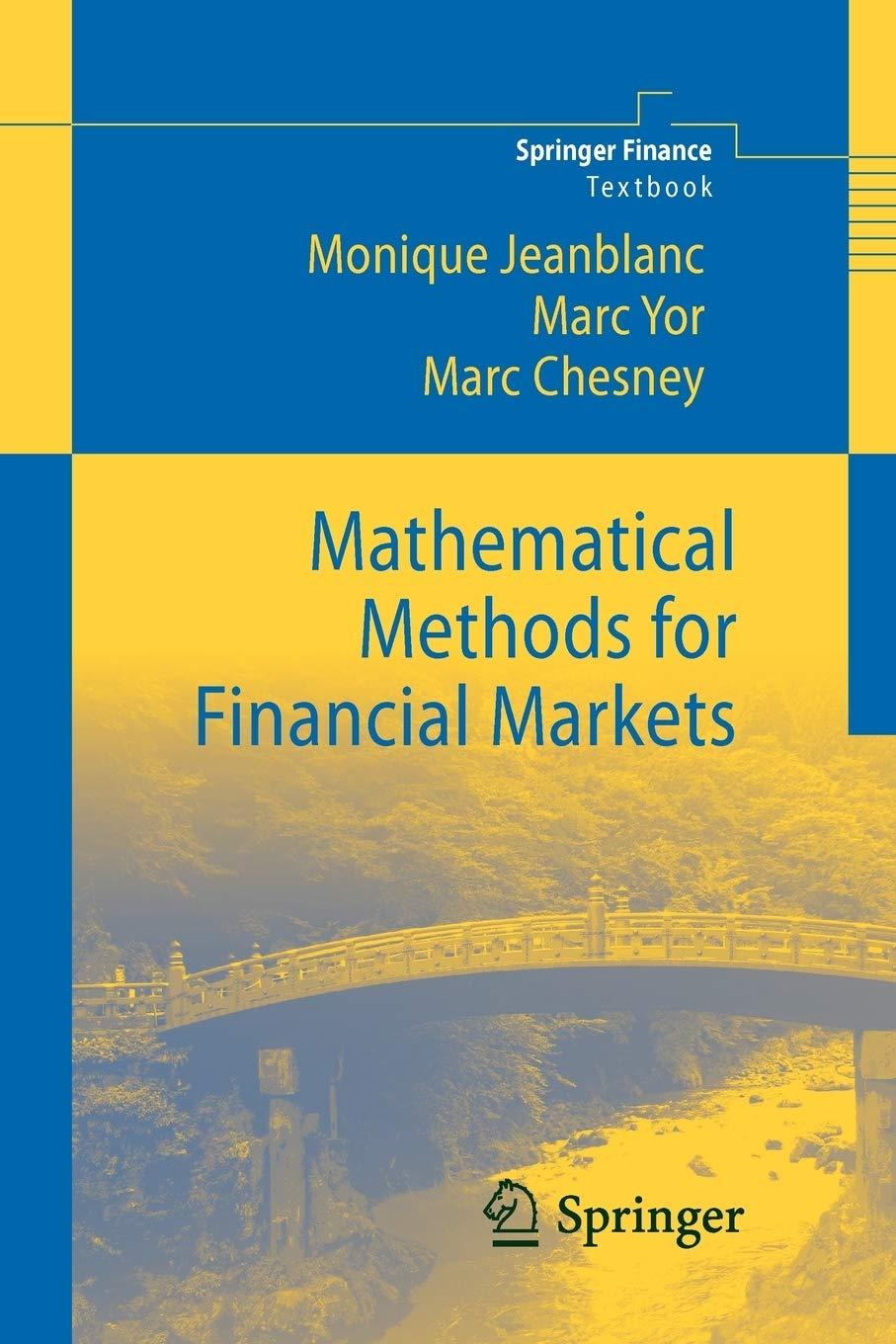(1) Let (M) be a positive continuous martingale such that (M_{0}=x). (i) Prove that if (lim _{t...
Question:
(1) Let \(M\) be a positive continuous martingale such that \(M_{0}=x\).
(i) Prove that if \(\lim _{t \rightarrow \infty} M_{t}=0\), then
\[\begin{equation*}\mathbb{P}\left(\sup M_{t}>a\right)=\left(\frac{x}{a}\right) \wedge 1 \tag{1.2.2}\end{equation*}\]
and
\(\sup M_{t} \stackrel{\text { law }}{=} \frac{x}{U}\)
where \(U\) is a random variable with a uniform law on \([0,1]\). (See [RY], Chapter 2, Exercise 3.12.)
(ii) Conversely, if \(\sup M_{t} \stackrel{\text { law }}{=} \frac{x}{U}\), show that \(M_{\infty}=0\).
(2) Application: Find the law of \(\sup _{t}\left(B_{t}-\mu t\right)\) for \(\mu>0\). (Use Example 1.2.1.7). For \(T_{a}^{(-\mu)}=\inf \left\{t: B_{t}-\mu t \geq a\right\}\), compute \(\mathbb{P}\left(T_{a}^{(-\mu)}<\infty\right)\).
Apply Doob's optional sampling theorem to \(T_{y} \wedge t\) and prove, passing to the limit when \(t\) goes to infinity, that
\[a=\mathbb{E}\left(M_{T_{y}}\right)=y \mathbb{P}\left(T_{y}<\infty\right)=y \mathbb{P}\left(\sup M_{t} \geq y\right)\]
Example 1.2.1.7:
The martingale \(M_{t}=\exp \left(\lambda W_{t}-\frac{\lambda^{2}}{2} t\right)\) where \(W\) is a Brownian motion is \(L^{1}\) bounded (indeed \(\forall t, \mathbb{E}\left(M_{t}\right)=1\) ). From \(\lim _{t \rightarrow \infty} \frac{W_{t}}{t}=0\), a.s., we get that
\[\lim _{t \rightarrow \infty} M_{t}=\lim _{t \rightarrow \infty} \exp \left(t\left(\lambda \frac{W_{t}}{t}-\frac{\lambda^{2}}{2}\right)\right)=\lim _{t \rightarrow \infty} \exp \left(-t \frac{\lambda^{2}}{2}\right)=0\]
hence this martingale is not u.i. on \(\left[0, \infty\left[\right.\right.\) (if it were, it would imply that \(M_{t}\) is null!).
Step by Step Answer:

Mathematical Methods For Financial Markets
ISBN: 9781447125242
1st Edition
Authors: Monique Jeanblanc, Marc Yor, Marc Chesney





